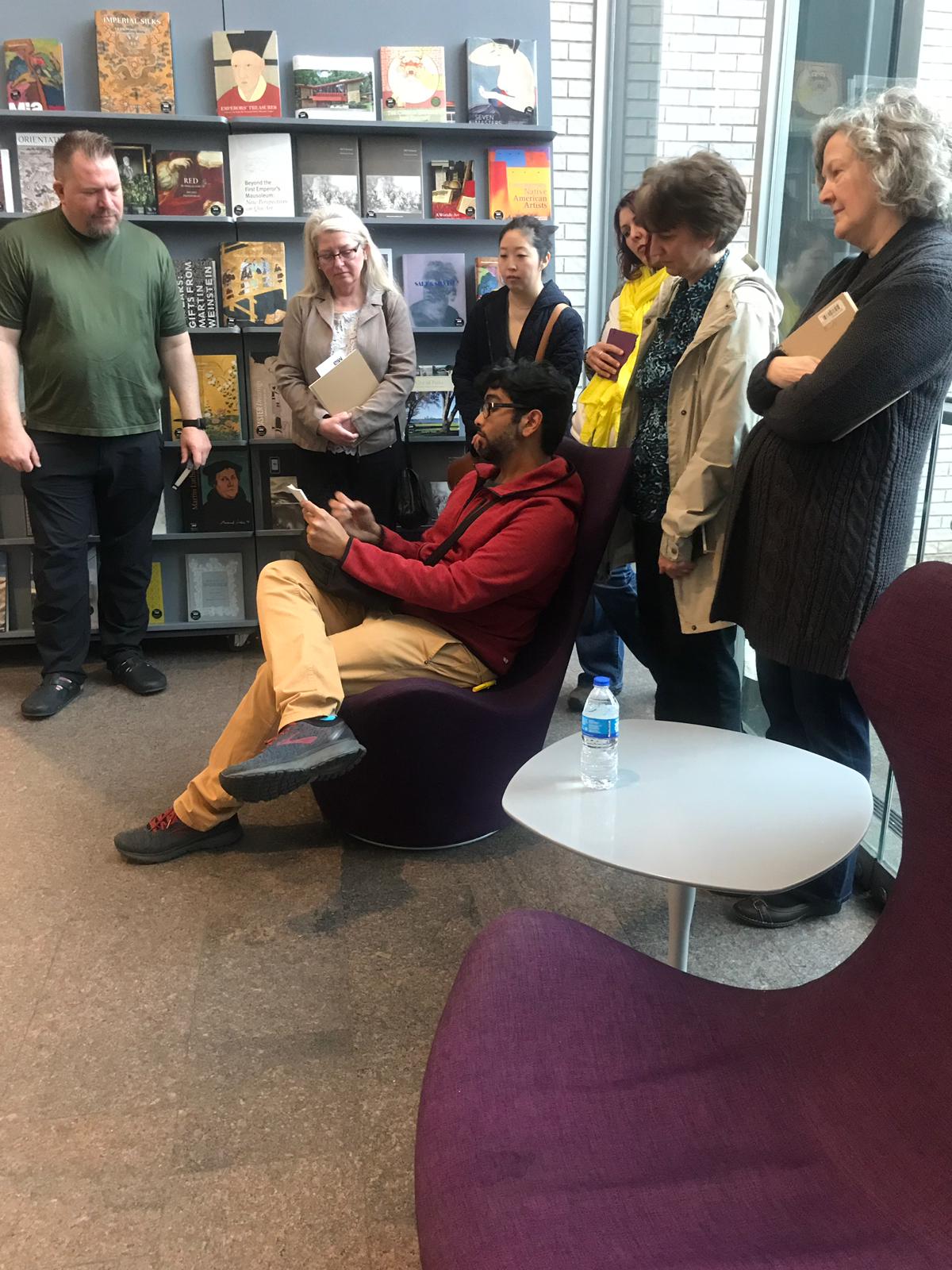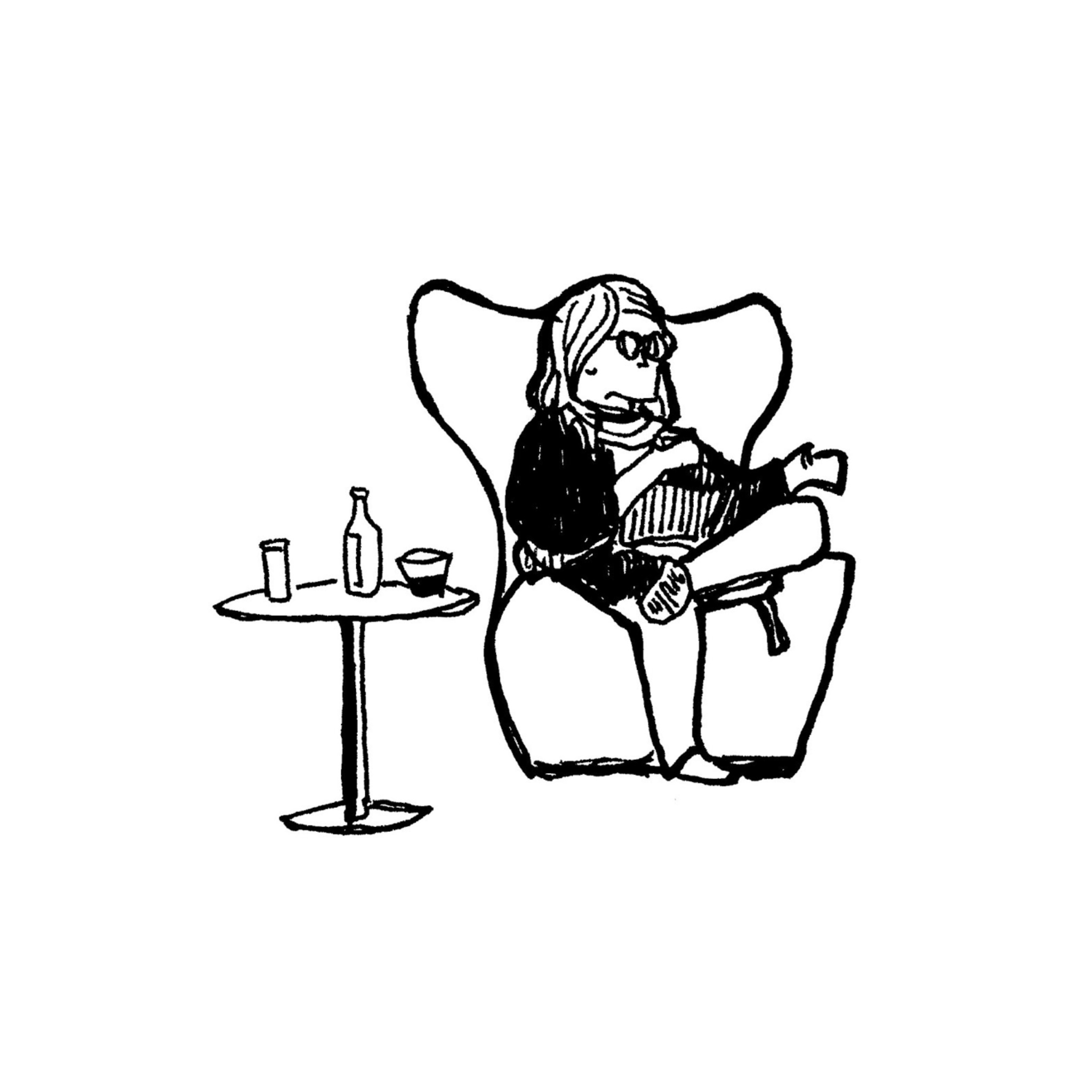Be Sneaky! in Minneapolis
The second trial run of the Be Sneaky workshop was held at the Minneapolis Institute of Art on 6th April 2019. My participants were 9 sketchers from the Twin Cities Urban Sketchers community. They were enthusiastic, passionate, and very talented. We produced a lot of beautiful art that day, in just a short time!
Demo #1 was about ways and means to capture essential details of human posture and activity from our surroundings.
I wanted to take the first demo a little slowly compared to my previous trial run in Chicago. I always think I talk too fast, take too much for granted vis a vis my audience, and generally get carried away in my own thoughts.
So … I slowed down. A bit.
The above sketch was 2-3 minutes long, primarily because I was talking through it. I also drew some other figures and silhouettes while explaining how I had learned to overcome my hesitations in drawing people, and found clever ways to complete my drawings even if my subjects got up and left.
The first demo was followed by a guided drawing exercise, in which the participants completed dozens of drawings with specific goals pertaining to drawing style, selecting a subject, and the restrictions they had to work around (time limits, single line impositions etc).
Talking while drawing… OR drawing while talking?!
I walked among the participants as they sketched. When I wasn’t sketching them, I offered advice and suggestions to help overcome the hurdles we set in our own drawing process. This was a ~30 second sketch of a fellow urban-sketcher, Nahree.
My second demo was about adding humans to the urban environment. A lot of urban sketchers hesitate to add people in their sketches, due to the dynamic demands of sketching people in what is an otherwise leisurely activity.
In this demo, I contend that an urban environment devoid of humans is desolate, akin to an urban wasteland. The only reason for urban environments to exist is for humans to live in them, and thus give them meaning. My argument is that it is essential to add people to our urban sketches, because they add value and context to all the urban features around them.
First drawing of the second demo
I felt it was important to talk to the participants as I sketched. I tried to share my vision, the way I perceived various obstacles in the drawing process, and the decisions I took to circumvent or resolve them.
The couple in this sketch wasn’t actually sitting together. I started on the left with another group, that got up and left almost as soon as I began. This drawing is therefore an amalgam of people at two different tables. Background elements are chosen judiciously to add to the composition of the sketch, balance the weight of the lines on all sides, and give the scene a sense of ‘completion’. This is a vague, subjective term in this case, different from person to person. I urged my participants to find their own sense of completion in their sketches.
Final drawing of the second demo. Using urban elements to set the atmosphere and ‘frame’ my subjects.
I was amazed at how quickly the participants took to my suggestions. The art we produced on that day was beautiful and plentiful. We must have drawn nearly 200 people over 3 hours!
Our collected works
The group!











